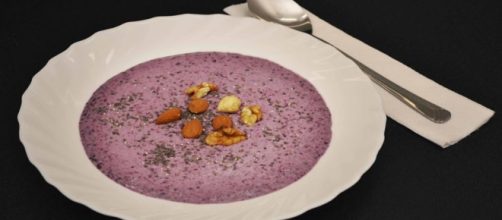The word superfoods is a relatively new term referring to food that has been around for a very long time. A superfood is seen as having high concentrations of certain vitamins and minerals, by those who use this word. But what exactly are these so-called superfoods, and are they super? Do they have the capacity to create some astounding health benefits as the word seems to imply? Or is the term largely industry scale hyperbole fostered to capture consumer dollars, as its opponents suggest?
Some claim miracle cures by superfoods
Wherever you turn these days you might find yourself faced with the dietary catch-cry, of a superfood.
Some dubious articles even cast assertions that they have the capacity to cure various illnesses and ailments, not backed by the medical and scientific industry. The word superfood has caught on rapidly, easily located in magazines, newspapers, blogs, advertisements. You may have seen your supermarket aisle or local health food store stocked with packages of health food labeled as a superfood or found them in the food creations at a café. Recipes such as banana chia pudding, porridge with blueberries, green shakes, goji berries, and various other meals peppered with super foods appear in trendy and happening menus.
Nay-sayers point to over-consumption
Many foods can be termed superfoods. Supposedly, the reason that they are referred to as being super is that these foods tend to contain strongly concentrated percentages of certain vitamins and minerals, and so are viewed as super.
But many in the scientific and medical community view this as a potentially harmful idea. The naysayers focus on the possibility of over-consumption of these foods by using such a word, and also that many healthy foods are excluded from the list. A heavy reliance solely on these foods is not recommended to create a balanced diet. But it does not appear to be a concept supported by the professionals in the nutritional and dietetics industry. While the foods that are referred to as superfoods are seen by the nutritionists and doctors as having important nutritional content, the business-oriented term of superfood is not.
Superfood buzz-word and science
The buzzword of superfoods has really caught on in the media and in business.
But this term is not really backed up by science, or medical research and literature. Though the actual foods that are categorized by this term could be a recommended food item by more professional circles such as doctors, the term itself is generally not well represented in such communities. Though no one would argue that there are not beneficial properties in eating spinach, blueberries, raspberries, garlic, quinoa, and so on, many in the professional community do not tend to use the word superfood, for now.
An excellent article from the Harvard School of Public Health indicates one such example of rejection of the word superfood. Superfood is described as ‘superhype’ and equates the term of super food to ‘super sales,’ mainly referring to how this term is being used by health companies to make sales, though never negating the nutritional content of the food themselves.
Several studies point to superfood dangers
A quote taken from an article in Live Science entitled 'Superfoods' by Christopher Wanjek, demonstrates the super hype quality to the superfood concept: “As healthful as superfoods might be, the use of the term is largely a marketing tool. Scientists do not use the term. For example, a search for "superfood" on PubMed, the repository of most peer-reviewed biomedical journal articles, yields fewer than a dozen results. And several of these studies actually warn of dangers of superfoods, such as arsenic and pesticide residue in imported foods.”
He further goes on to quote Despina Hyde, a qualified dietician at New York University’s Langone Medical Center as saying that "superfoods is more a marketing term for foods that have health benefits." As in all things, balance is needed and the concept of a superfood can be dangerous too in making people think that it is okay to consume large amounts of these foods without any consequences.
This is not the case. There are lots of healthy foods that are not even labeled as superfood, and that should not be excluded from a diet.
The Harvard School of Public Health recommends not concentrating heavily on a few foods that may be seen as superfoods, by not over-relying on food. Rather focus on creating a super plate, having a wide variety of foods across the spectrum, during meals.


